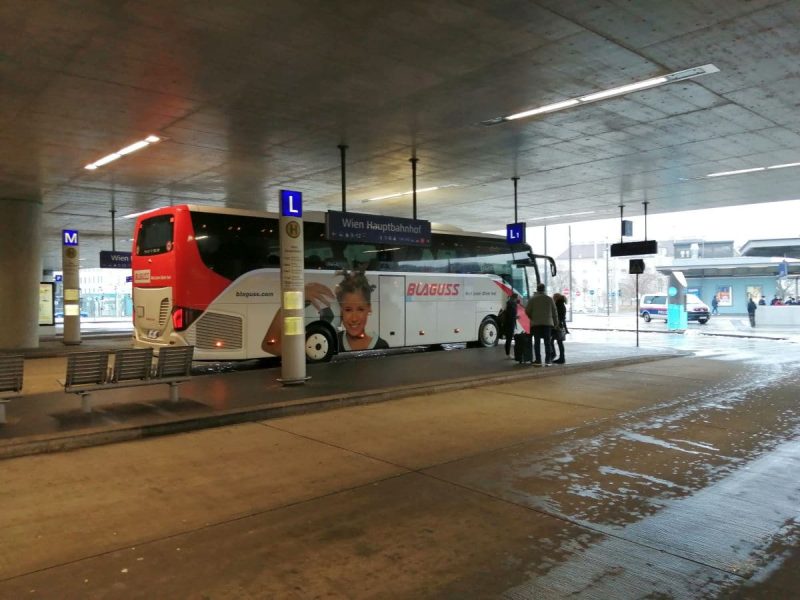The Austrian bus and tourism group Blaguss is currently testing the use of biogenic diesel fuel in five buses. The company writes that if the project is successful, the entire vehicle fleet could be converted within a few days.
According to Blaguss Reisen, HVO100 should cause up to 90 percent less carbon dioxide, 24 percent less carbon monoxide and 33 percent less particulate matter. As part of the pilot project, the bus company wants to evaluate whether the biofuel can also be used in everyday life. First you fill up five vehicles with this fuel. They also want to find out whether the fuel consumption is constant and whether there is any customer demand for the use of biodiesel at all.
Until a few years ago, hardly anyone crowed about what was in the tanks of airplanes, trains, buses, ships and other vehicles with combustion engines. Some politicians and companies have meanwhile jumped on the "environmental protection bandwagon" and are trying to implement various projects. Unfortunately, there are also some advertising statements, especially in the cruise and aviation sectors, which have already resulted in lawsuits due to allegations of "greenwashing". Many companies generally think they have to jump on the "train" and have been presenting themselves as particularly environmentally and climate-friendly for some time. The actual values are often difficult or impossible to verify.
However, it is also clear that in most cases the use of alternative fuels or drive technologies is associated with higher costs. In aviation, some airlines, including the Lufthansa Group, even collect "donations" for SAF fuels, or special "green tariffs" claim that the use of SAF is already included. However, passengers cannot check how many kilograms or liters of this supposedly particularly climate-friendly liquid are actually filled up. Remarkably, the group of companies mentioned has repeatedly deleted corresponding inquiries that were made publicly on social media platforms without comment.
Completely independent of this, Blaguss Reisen is of the opinion that there would be an increased customer demand for real climate protection. They want to comply with this and can imagine converting the entire fleet of coaches to HVO100. Of course, this involves a lot of effort, because in contrast to the scheduled vehicles, which are on the road both on their own account and on behalf of transport associations or public utilities, these do not return to their “base” every day. This means that availability must also be ensured on longer journeys at home and abroad. This not only includes charter and travel trips, but also scheduled services, which are operated nationally and internationally under the Flixbus brand. Suitable bio-diesel is not yet available in all countries, but at some point every bus that is powered by a combustion engine will have to go to the gas station. Blaguss's announcement that the entire fleet could be converted to HVO100 within a few days can therefore also be understood to mean that this would be used at the company's own filling stations and where available. Incidentally, from a technical point of view, there would be nothing wrong with filling up with "normal diesel" in between.
“It is crucial that as little climate-damaging CO2 as possible is emitted on our roads. The reduction of diesel consumption and fossil fuels is essential for this. That's why the conversion of our fleet to HVO100 is an important and correct trend reversal," say the managing directors Thomas and Paul Blaguss. The company has also set itself the goal of being climate-neutral with its entire fleet of coaches by 2035. Blaguss is taking such a significant step towards climate-neutral passenger transport.
The fact that vehicle manufacturers are now working intensively on the development of alternative forms of drive after decades of snoring in the pendulum clock shows that biofuels may only be a temporary solution. For example, electric, hydrogen, ethanol fuel cells and other options could possibly prevail. Actually, these could have been in use for decades, but due to the low cost of petrol and diesel, there was hardly any demand worth mentioning.
“The pace at the manufacturers is currently very high, so it is only a matter of time. But even if we are eagerly awaiting future developments, it is important to us to make a contribution to climate protection right now. For our bus fleet, biogenic fuel is currently the best option on the market to reduce pollutants to an absolute minimum,” say the two Blaguss cousins.







 trail (for them it's free to use)
trail (for them it's free to use)